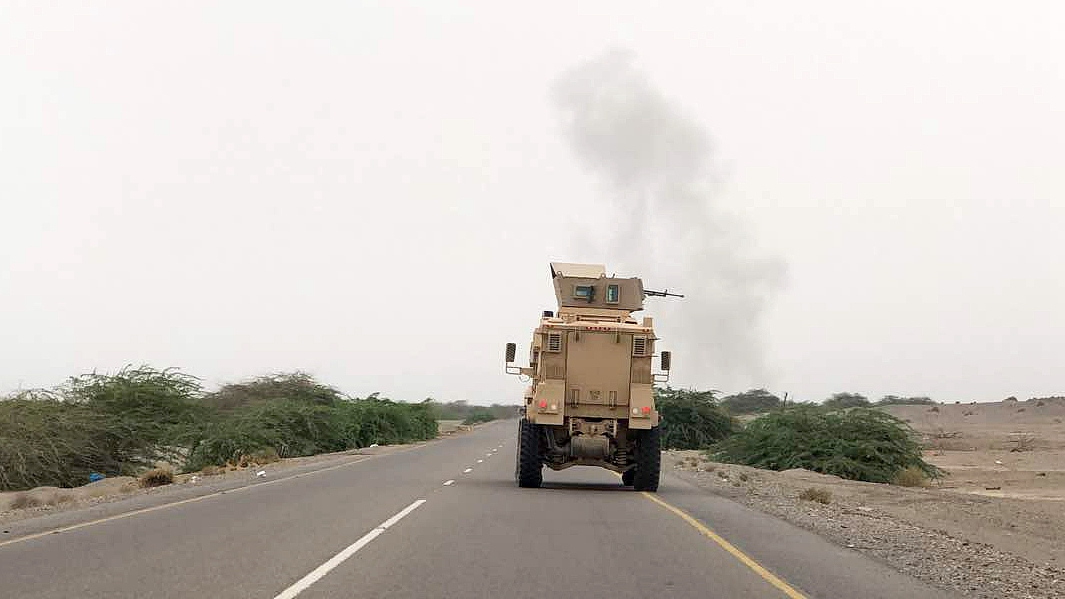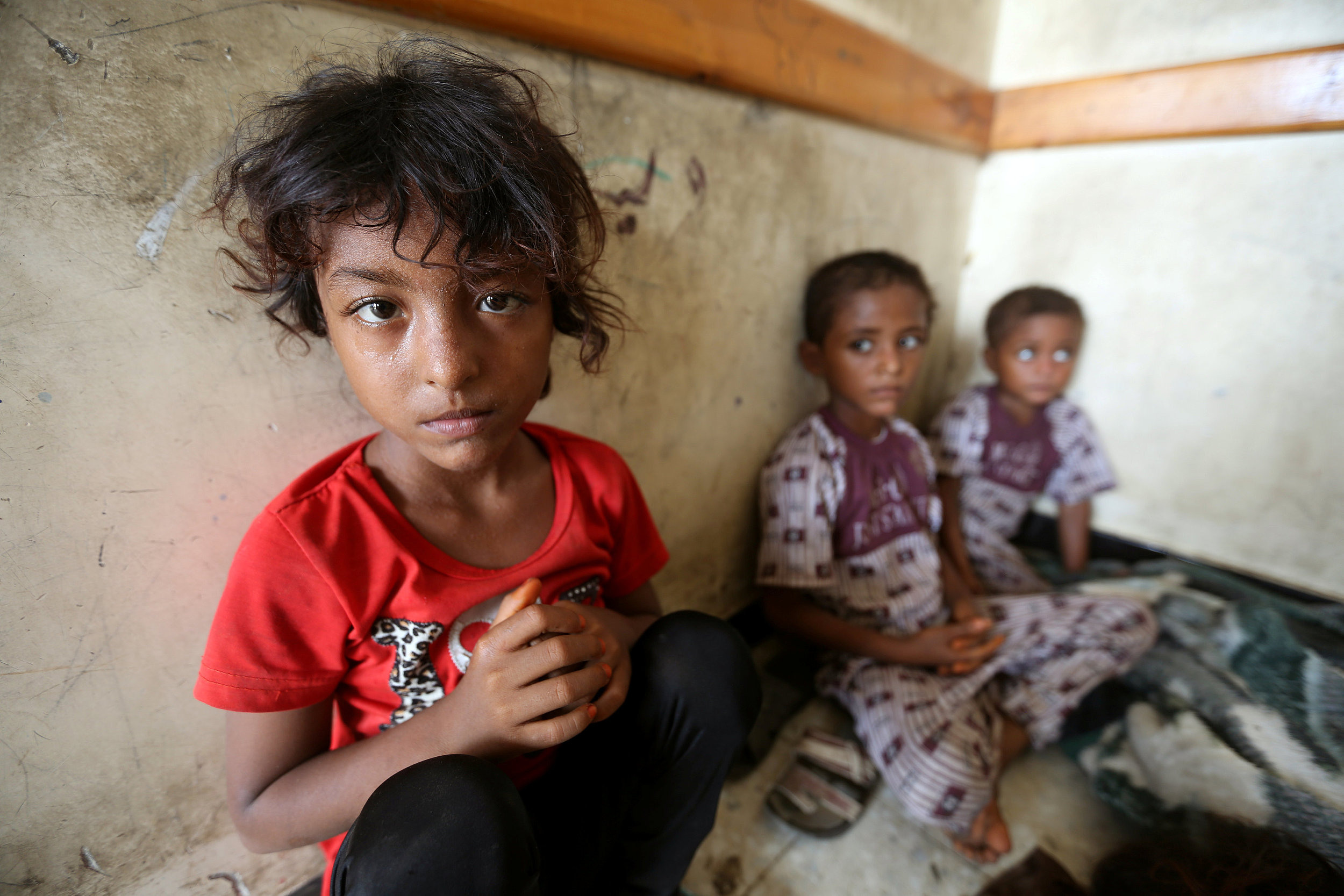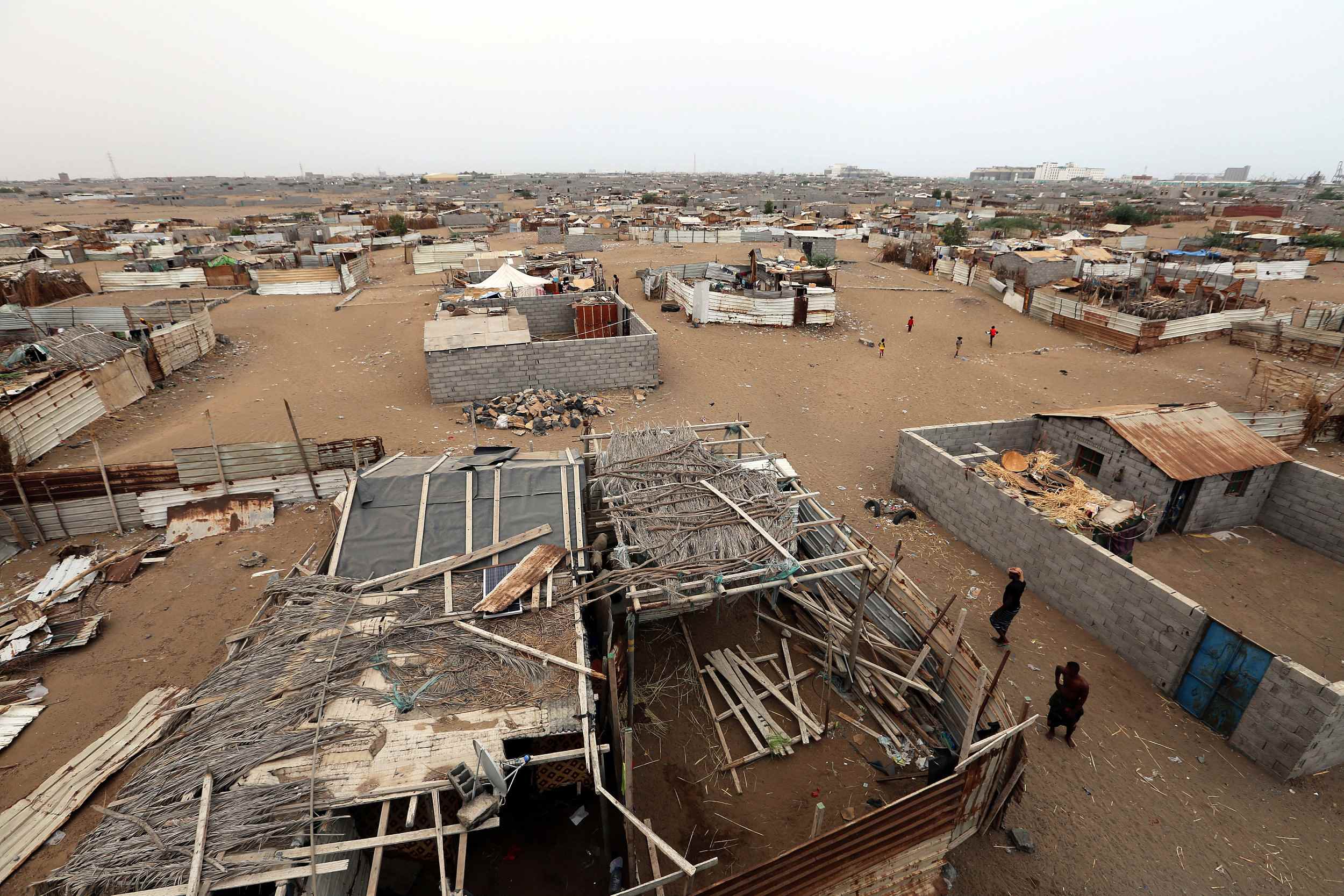
World
11:13, 18-Jun-2018
Saudi-led coalition conducts air strikes on Yemen's Hodeidah airport
CGTN

Houthi forces fought to keep control of the airport in Yemen’s main port city of Hodeidah on Sunday as Saudi-led coalition air strikes struck the compound, in an offensive that could be a turning point in the three-year conflict.
Losing Hodeidah would deal a serious blow to the Iran-aligned Houthis, cutting supply lines from the Red Sea to their stronghold in the capital Sanaa.
It could also give an edge to the Western-backed military alliance which, despite superior weaponry and firepower, has failed to defeat the Houthis in a war that has killed 10,000 people and created the world’s most urgent humanitarian crisis.
“Coalition airplanes carried out more than 20 raids until now and shook the city,” resident Akram Yihya said by telephone. “We can clearly hear fighting and missiles landing in an area near the airport.” About 20,000 troops, mostly Yemenis from various factions led by United Arab Emirates forces and backed by warplanes and Apache attack helicopters, have been fighting to dislodge the Houthis since 2015.

Children sit in a classroom of a school to which they have been evacuated from a village near Hodeidah airport amid fighting between government forces and Houthi fighters in Hodeidah,Yemen, June 17, 2018. /VCG Photo
Children sit in a classroom of a school to which they have been evacuated from a village near Hodeidah airport amid fighting between government forces and Houthi fighters in Hodeidah,Yemen, June 17, 2018. /VCG Photo
The coalition wants to restore an internationally recognized government in exile and thwart what Riyadh and Abu Dhabi believe are arch-foe Iran’s ambitions to dominate the region.
As air raids pounded Houthi fortifications in the airport, Houthi fighters blocked the main road from Hodeidah to Sanaa with mounds of earth and chunks of asphalt to prevent coalition troops from advancing.
“The air strikes and missiles are shaking the city’s houses,” said resident Khaled Sharaf. People living near the airport said bullets were hitting their homes as fighting raged.
The battle for Hodeidah could drag on, creating more suffering for civilians who have already endured air strikes, port blockades, hunger and a cholera epidemic.
The offensive could also have ramifications further afield due to Yemen’s role in a proxy war between Saudi Arabia and Iran that has fueled instability across the Middle East.
The Houthis, mountain fighters who seized Sanaa in 2014, gained valuable experience in a series of guerrilla wars with Yemen’s national army and a brief border war with Saudi Arabia.

People walk in a shantytown near the port of Hodeidah, Yemen, June 16, 2018. /VCG Photo
People walk in a shantytown near the port of Hodeidah, Yemen, June 16, 2018. /VCG Photo
Armed mostly with AK-47 assault rifles, they have advanced on sandal-shod feet and by pickup trucks in battles across Yemen, one of the world’s poorest countries.
That may give them an advantage in street-to street combat if fighting extends to the densely populated neighborhoods of Hodeidah, a city home to around 600,000 people.
Others walked past armored vehicles and took up positions in the sand. One casually fired mortar bombs into the distance.
Houthis rule the most populous areas of Yemen, a chronically unstable country, where many parties have been competing in a messy civil war, from loyalists of the late President Ali Abdullah Saleh to southern separatists to al-Qaeda.
The United Nations says the assault on Hodeidah could trigger a famine imperiling millions of lives. Many residents are bracing for more hardship as the warring sides dig in.
(Cover photo: An armored vehicle fires a heavy machine gun as Yemeni pro-government forces conduct an attack on Houthi rebels positions in the area of al-Fazah in Yemen's Hodeida province on June 16, 2018. /VCG Photo )
7541km
Source(s): Reuters

SITEMAP
Copyright © 2018 CGTN. Beijing ICP prepared NO.16065310-3
Copyright © 2018 CGTN. Beijing ICP prepared NO.16065310-3